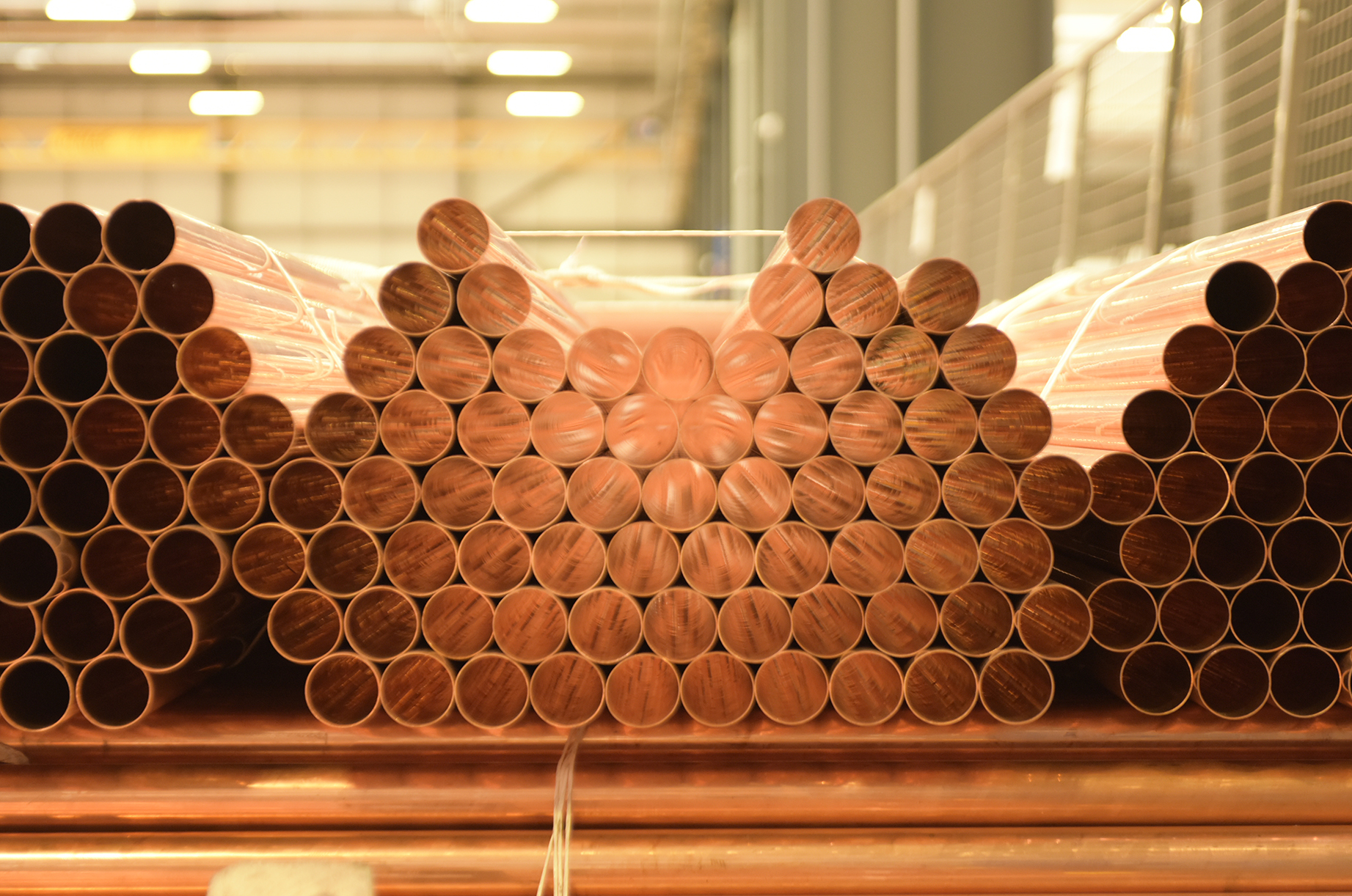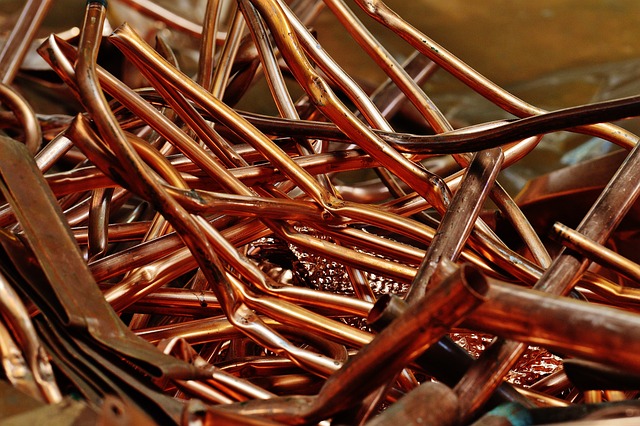
Copper is thought to be the first metal used by humans. Over the centuries, we’ve found various uses for this versatile material, from health care to the plumbing in your house – the applications seem endless! So, what are the benefits of copper and how sustainable is it in the long term?
Why should we be using copper? 5 key benefits
Benefit #1 Copper is malleable and a great conductor
Some of the key benefits of copper stem from its basic properties. Copper is easy to manipulate and shape to suit the user’s needs, which makes it ideal for use in industry. Whether it’s for plumbing, air conditioning units, or gin and whiskey distillation stills, copper can be manipulated to fulfil the task in hand.
It’s also an excellent conductor of heat and electricity. Compared to other metals, copper is far more efficient during energy transfer. This s because the surface area of copper heats up evenly and it is also a slow radiator, allowing it to retain heat far longer than other common metals.
Copper’s energy efficiency is great news for businesses and the planet. Less energy used means lower costs and less of an impact on the environment.

Benefit #2 Copper is antibacterial
Copper has a unique quality of being antibacterial and antimicrobial, making it perfect for medical and hygiene purposes.
The earliest recorded instance of copper being used in such a way can be found in the ancient Egyptian text, the Smith Papyrus, detailing the use of copper vessels to decontaminate water. Copper is ideal for this as it can kill certain types of microbial lifeforms found in water such as Legionella (Legionnaire’s disease) and Escherichia Coli (E. Coli).
How does it do this? When bacteria come in contact with a copper sheet and, in some cases, copper alloys, they can be killed within two hours of contact. It comes as no surprise that copper was so readily adopted throughout the ancient world, where morbidity and mortality were far more prevalent than today.
Benefit #3 Copper can improve health
The health benefits of copper are well documented, but did you know it’s also an essential nutrient in the human body? Copper helps to maintain bone health, nerves, blood vessels, the immune system, and the creation of red blood cells. As a result, having copper in your diet can help to prevent serious illnesses such as cardiovascular disease and osteoporosis.
It’s easy to enjoy the benefits of adding copper to your diet. Your body only needs small amounts of copper, so increasing your intake of vegetables such as peas, beans and greens, plus whole grains and sunflower seeds contain copper. It can also be found in shellfish, peanut butter and dark chocolate!

Benefit #4 Copper can be combined with other metals
As with other elements, copper can be mixed with different metals to make alloys used in specialist applications. One example is bronze (made primarily of copper and tin), which has anti-seizing properties, wear resistance and low friction, making it ideal for the bearings in machinery.
Another alloy example is copper-nickel, used to clad the hulls of ships which are constantly exposed to salt water. Bonding copper-nickel to their steel hulls protects them from corrosion, which in turn prevents them from polluting and damaging ocean environments as well as reducing the ship’s frictional drag. Less frictional drag equals reduced fuel consumption and faster sailing, protecting the environment even further.
Benefit #5 Copper is infinitely recyclable
One of the concerns when recycling is that the material being recycled can sometimes lose its properties. When paper is recycled, for example, the strength of its fibres is diminished.
However, one of the sustainable befits of copper is that it can be recycled and repurposed into other products time and time again without ever losing its unique properties. There is no difference in quality between copper that has been freshly mined compared to recycled copper. For this reason, it’s thought to be one of the most recycled metals on the planet!

So, how sustainable are copper pipes?
Very! To give you an idea: between 65% and 80% of all copper ever produced (dating back approximately 10,000 years) is believed to still be in circulation today. Copper is one of the most sustainable materials out there!
Because it can be recycled an unlimited number of times, we can use copper to help build a more sustainable future and allow subsequent generations to continue benefitting from its unique properties.
Get in touch with one of the team today to learn how copper can help your business.
At Lawton Tubes, we provide a range of copper pipes, including 6mm copper pipe, 15mm copper pipe, 22mm copper pipe, 28mm copper pipe and 35mm copper pipe.



